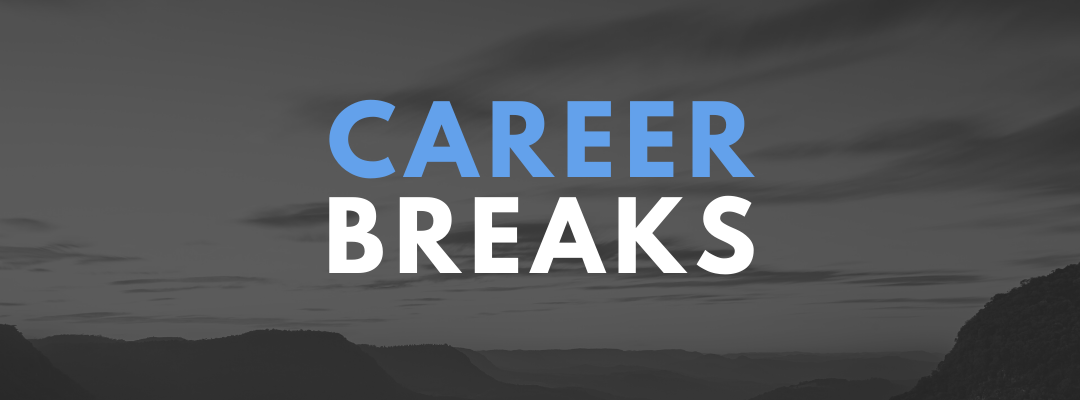The term career break has become increasingly popular over the past couple of months. Why? Because life, that’s why.
Instead of stigmatizing people for gaps in their resumes, it should be more socially acceptable to have an open dialogue about it. Career breaks should not be synonymous with “not working” or “goofing off.” Many professionals are often forced to take career breaks to be a caretaker or recover from burnout. Instead of treating candidates that have a career break in their resume as unqualified, we should be treating them with understanding.
This topic has gained so much traction recently that LinkedIn has added “Career Breaks” as a feature on user profiles. The hope is that this feature will alleviate the pressure of discussing gaps and that hiring managers will reconsider overlooked talent by seeing profiles through a new lens.
As a Job Seeker
If you are a job seeker, you might be familiar with the dreaded feeling of speaking about a gap in your resume. Maybe you took time off to raise your kids, or perhaps you were dedicated to polishing relevant skills. While it is preferable to have no breaks in a resume, it is simply unrealistic to expect this from everyone. And to have transparency in the workplace, there must be transparency in the interview process. Job seekers, you do not want to work with employers who make you feel guilty about taking career breaks. It might not be the smoothest conversation to have initially, but rest assured that you are one of many professionals who are in the same boat.
If there is a very noticeable gap in your resume, it might be wise to include a “Career Break” in your resume. According to a survey conducted by LinkedIn, “nearly 23,000 workers and more than 4,000 hiring managers found that nearly two-thirds (62%) of employees have taken a break at some point in their professional career, and just over a third (35%), mostly women, would like to take a career break in the future.” These are staggering numbers that will only grow over time.
Instead of emphasizing gaps, this feature highlights positive learning experiences and time taken to sharpen skills. When relevant, adding career breaks into your resume can shed a positive light on work pauses.
As a Hiring Manager
There are many reasons for career breaks including maternity leave, skill-building, and caretaking. As a hiring manager, none of these reasons should come as a surprise to you. The world shifting away from the traditional workplace should also not come as a surprise.
Many people take career breaks to explore new career paths, giving them a fresh perspective and new direction. As hiring managers, it is crucial to approach talent with career breaks differently than those who do not during interviews. Rethink your typical questions and take the time to thoroughly understand the context of why the candidate took a work pause. For example, ask questions such as: What are some things you learned during your career break? How would you apply those skills in this role?
Recognize the candidate as a whole person, and strategically identify if the person’s skills and abilities will properly support the role you are hiring for. If a candidate took time off to be a caretaker, this shows emotional intelligence and responsibility. These are likely qualities you are already looking for in a top candidate.

